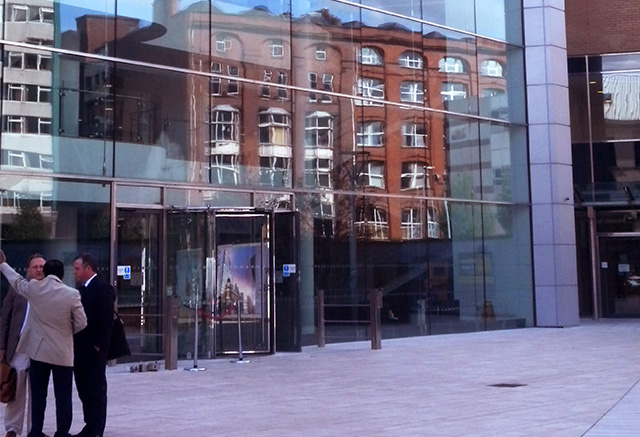Procurement for social progress


Invest NI Building, Bedford Square, Belfast
John O’Farrell of the Irish Congress of Trade Unions believes that the volumes of capital spending must be better used for a more equal society.
The debate about rail in Britain is one scenario in which the dominant ideology of the past three decades is being challenged and there appears to be public support for an end to the market-led experiment and the return of public ownership and control.
The obsession by policy makers with letting the market decide all things has really hit the buffers during the general election campaign. While the Tory press predictably howled at the mild social democracy of Corbynomics, they averted their gaze carefully from the wild swerve back to corporatism evident in Theresa May’s policy positions. Either way, the state is back, and this seems to be a reaction to Brexit and the populist reaction against globalisation.
We will soon be marking the tenth anniversary of the collapse of Northern Rock, the moment when the UK’s love affair with financialisation shattered. We have watched a procession of chickens coming home to roost. Recently, the scale of the PFI scam was made clear, after years when it was used as a way of getting infrastructure on ‘tick’: “33 government private finance loans to build hospitals, roads and schools are to cost the Northern Ireland taxpayer £5 billion more than their value by 2043,” reported The Irish News last March. “In all, the projects have a capital value of almost £1.7 billion, but by 2043 more than £6.6 billion will have been spent on ‘unitary charge payments’, which include interest.”
The most karma-laden example is the state agency tasked with our economic development:
“Invest NI entered into a PFI arrangement with the Bedford Street Developments Limited (BSDL) Group in 2004 to construct and manage its Belfast city centre headquarters building for a 25-year period ending October 2030. The £19 million capital value project at Bedford Street is set to cost £120 million over 25 years, according to the figures – more than six times the initial outlay.”
That’s what a magic money tree looks like. There is, however, another use for taxpayers’ cash to develop our society. Firstly, by raising the money fairly and upfront through progressive taxation and government borrowing, and secondly, by thinking through the secondary benefits.
Technological progress can be social progress. Always remember that the greatest strides for gender equality were facilitated by the washing machine and safe contraception as much as by legislation and protest.
Similar strides towards a more equal society can be helped by smarter and more human public procurement. The unions have long argued for equality of opportunity to be applied to the spending of public money, by the integration and mainstreaming of Northern Ireland’s statutory equality duties. In the NHS, Unison succeeded in modifying the two-tier workforce agreement to include strengthened guidance stating that employer breaches of the code may lead to disqualification from the tendering process for a future contract. Unfortunately, attempts to roll-out the decade old two-tier workforce agreement across the entire public sector has been frustrated.
The state in Northern Ireland still spends over £3 billion each year, even with a decade of cutbacks, especially on capital spending. We should spend more honestly raised cash, and spend it wisely, because the tragedy of the RHI scandal is that the idea was a good one, for the rural economy and for the planet. The lesson ought not to be that the road to hell is paved with good intentions.
Photo Credit: Tim Kingsley





